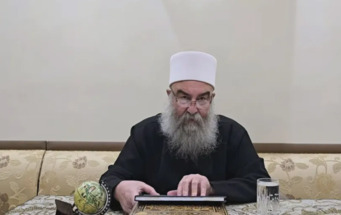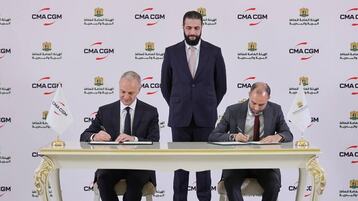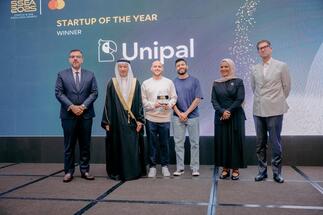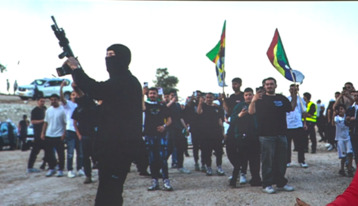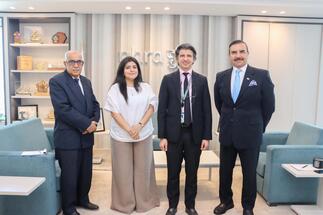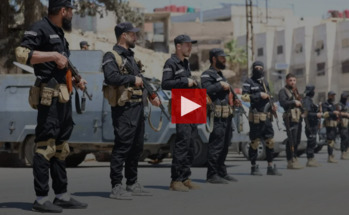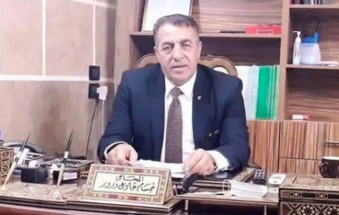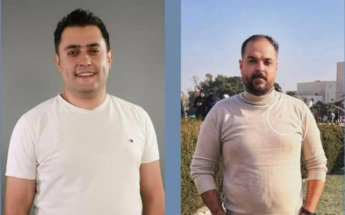-
Israel discloses Iranian-led Hezbollah missile project Iran transferred missile equipment to Lebanon after Israeli strikes
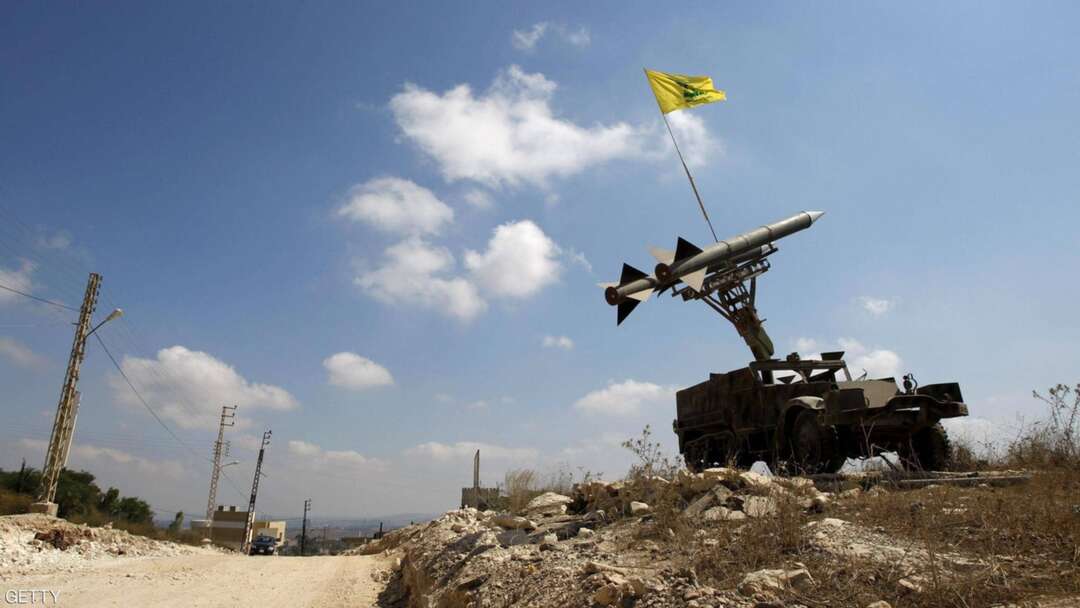
On Thursday, The Israeli army revealed details of the Lebanese Hezbollah militia’s precision missile project led by Iran. Pictures and names of involved Lebanese and Iranian figures were also published.
It was reported after a video footage published by Israeli army spokesman, Avichay Adraee, on his social media accounts, that Iran began attempts to transfer precision-ready missiles to Hezbollah in Lebanon via Syria between 2013-2015.
The precision missile carries guiding devices that can hit targets a few meters away. It can also carry explosives and a warhead. Most of the rockets in Hezbollah's arsenal rely on inaccurate weapons of various dimensions.
The Israeli army confirmed that most of these attempts were thwarted in air strikes, which prevented the Lebanese Hezbollah from obtaining the missiles.
Given this failure, Iran decided in 2016 to fundamentally change its working methods to converting existing missiles into precision missiles on Lebanese territory rather than moving full missiles.
As a first step, audit materials from Iran as well as rockets from the Syrian Research Institute, have been transferred to Lebanese territory for Hezbollah.
In cooperation with Iranian entities headed by Mohammad Hussein Zadeh Hijazi, commander of the Lebanese Force in the Quds Force which is led by Qassem Soleimani, Hezbollah began rehabilitation of positions inside Lebanon including the capital Beirut.
The IDF said that the materials had been transported through three axes: the first one was from Syria to Lebanon through the official crossings of the Lebanese state such as al-Masnaa crossing.
The second was airlifted by civilian flights landing at Beirut's Hariri International Airport. The third was through the seaport of Beirut.
During 2016-2018, Iran and Hezbollah faced difficulties in implementing the missile conversion plan and failed to achieve the desired goal.
Recently, Iran and Hezbollah are seeking to accelerate the precision missile project by attempting to establish production and conversion sites on Lebanese territory in several areas.
The Israeli army has announced senior figures involved in the precision missile project including Brigadier-General Mohammad Hussein Zadeh Hijazi, commander of the Lebanese force in the Quds Force, who is leading the precision missile project.
Among the figures is Colonel Majid Nawab, the project's technology officer who works under the guidance of the Quds Force led by Qassem Soleimani. He is an expert in the field of surface-to-surface missiles and oversees the technological aspects of the project.
Israeli army stated that Brigadier-General Ali Asghar Norouzi, head of the Revolutionary Guards' logistics body, was in charge of transporting logistical materials and equipment from Iran to Syria then to the precision missile sites in Lebanon.
Fouad Shukr, a senior Hezbollah commander, is leading the precision missile project. Shukr is a senior adviser to Hezbollah's secretary-general and member of the party's senior body and has been serving the party for 30 years.
You May Also Like
Popular Posts
Caricature
BENEFIT Sponsors BuildHer...
- April 23, 2025
BENEFIT, the Kingdom’s innovator and leading company in Fintech and electronic financial transactions service, has sponsored the BuildHer CityHack 2025 Hackathon, a two-day event spearheaded by the College of Engineering and Technology at the Royal University for Women (RUW).
Aimed at secondary school students, the event brought together a distinguished group of academic professionals and technology experts to mentor and inspire young participants.
More than 100 high school students from across the Kingdom of Bahrain took part in the hackathon, which featured an intensive programme of training workshops and hands-on sessions. These activities were tailored to enhance participants’ critical thinking, collaborative problem-solving, and team-building capabilities, while also encouraging the development of practical and sustainable solutions to contemporary challenges using modern technological tools.
BENEFIT’s Chief Executive Mr. Abdulwahed AlJanahi, commented: “Our support for this educational hackathon reflects our long-term strategic vision to nurture the talents of emerging national youth and empower the next generation of accomplished female leaders in technology. By fostering creativity and innovation, we aim to contribute meaningfully to Bahrain’s comprehensive development goals and align with the aspirations outlined in the Kingdom’s Vision 2030—an ambition in which BENEFIT plays a central role.”
Professor Riyadh Yousif Hamzah, President of the Royal University for Women, commented: “This initiative reflects our commitment to advancing women in STEM fields. We're cultivating a generation of creative, solution-driven female leaders who will drive national development. Our partnership with BENEFIT exemplifies the powerful synergy between academia and private sector in supporting educational innovation.”
Hanan Abdulla Hasan, Senior Manager, PR & Communication at BENEFIT, said: “We are honoured to collaborate with RUW in supporting this remarkable technology-focused event. It highlights our commitment to social responsibility, and our ongoing efforts to enhance the digital and innovation capabilities of young Bahraini women and foster their ability to harness technological tools in the service of a smarter, more sustainable future.”
For his part, Dr. Humam ElAgha, Acting Dean of the College of Engineering and Technology at the University, said: “BuildHer CityHack 2025 embodies our hands-on approach to education. By tackling real-world problems through creative thinking and sustainable solutions, we're preparing women to thrive in the knowledge economy – a cornerstone of the University's vision.”
opinion
Report
ads
Newsletter
Subscribe to our mailing list to get the new updates!

